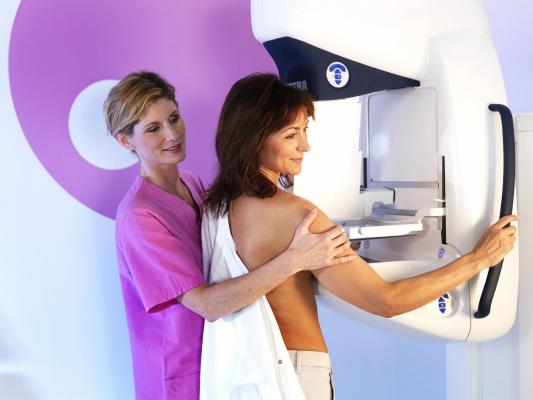
June 29, 2015 - Women diagnosed with breast cancer and treated with one week of partial breast radiation after surgical tumor removal saw no increase in cancer recurrence or difference in cosmetic outcomes, according to a new UCLA study. Subjects were compared to women who received radiation of the entire breast for a period of up to six weeks after surgery. The study is one of the largest ever done on partial breast irradiation.
The study lasted two decades and was led by Mitchell Kamrava, M.D., an assistant professor of radiation oncology at UCLA and member of the Jonsson Comprehensive Cancer Center. Kamrava and his team found that with partial breast irradiation, the total length of treatment can be reduced to a week because the smaller area of treatment allows for a higher dosage per treatment. Additionally, because partial breast radiation is more targeted, there is less exposure to vital organs like the lungs and the heart.
The new treatment, formally known as accelerated partial breast irradiation with interstitial multicatheter brachytherapy, works by radiating only breast tissue in and around the area where the tumor was removed. The current standard of care, called whole breast conservation therapy, involves irradiating the entire breast after surgery, usually over the course of five to seven weeks. This results in prolonged exposure to radiation and can potentially lead to more side effects.
"This gives us confidence there is a group of women who are suitable candidates for partial breast radiation and more women should discuss this treatment option with their doctors," said Kamrava.
The study followed more than 1,000 women who received partial breast irradiation after surgery, with an average follow-up of about seven years.
The next phase for Kamrava and his team will be to analyze the results of randomized trials comparing whole breast versus partial breast irradiation.
For more information: www.cancer.ucla.edu


 February 18, 2026
February 18, 2026 









